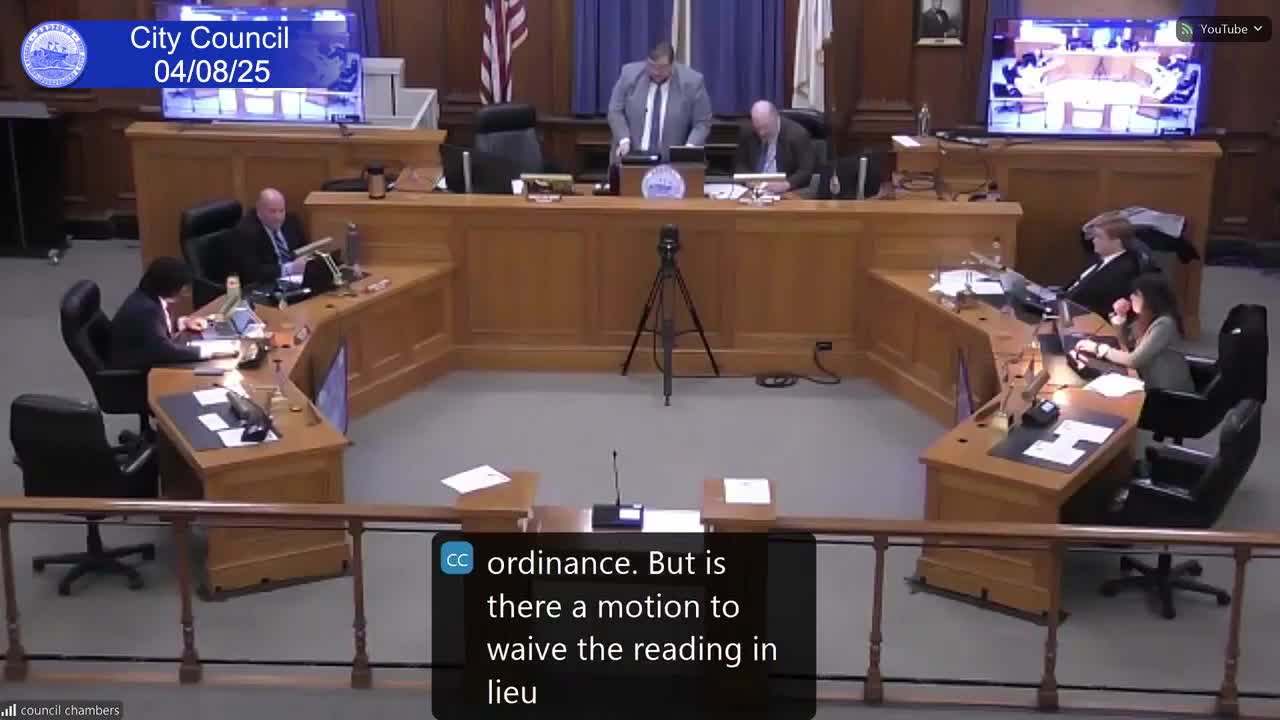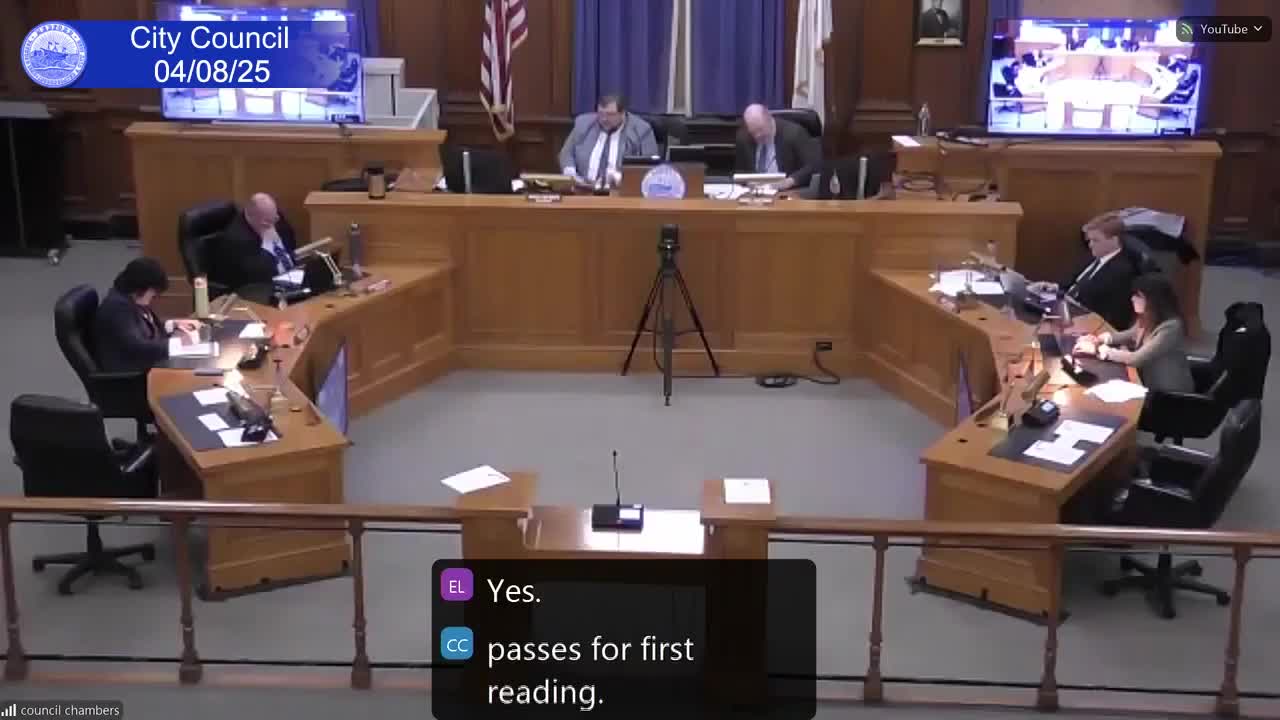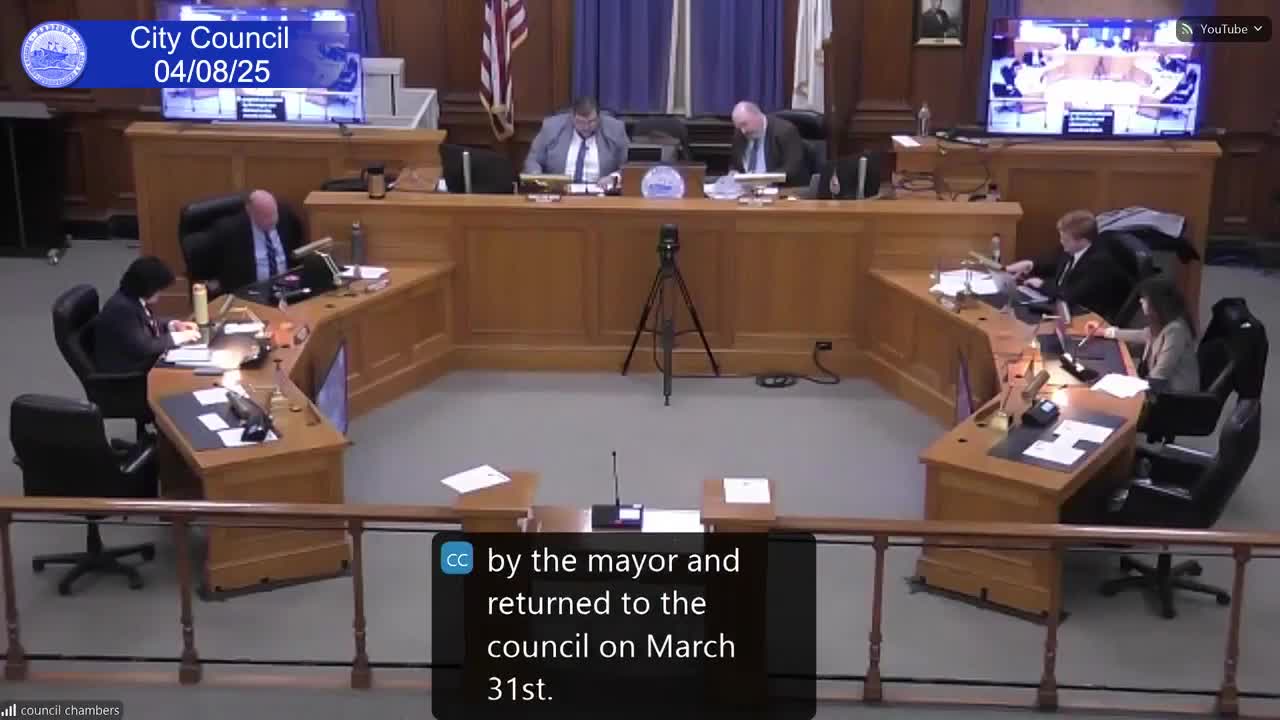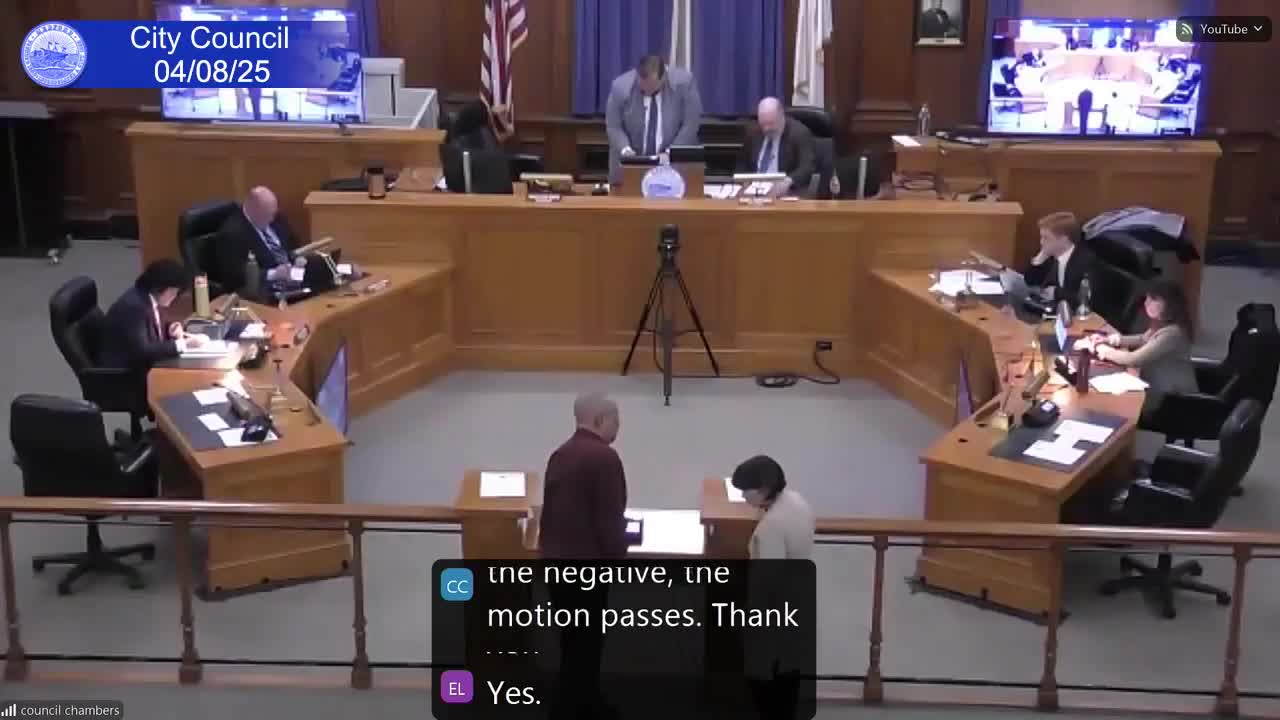Article not found
This article is no longer available. But don't worry—we've gathered other articles that discuss the same topic.

Council advances gender‑affirming care and reproductive healthcare ordinance to first reading

Council backs resolution calling for release of Tufts student detained by ICE and approves 'Know Your Rights' materials for residents

Council refers amended mayoral draft of city charter to special meeting after heated debate; several amendments adopted

